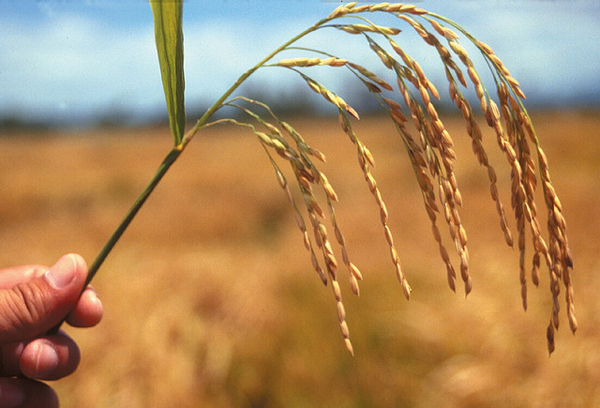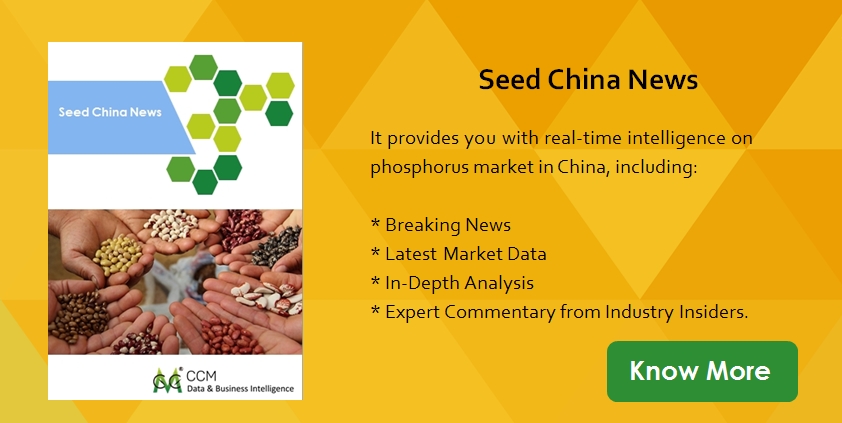Summary: The planting area of hybrid rice
in China is gradually shrinking, and the planting area of conventional rice is
increasing. New high-quality and high-yield conventional rice varieties are
preferred by farmers because they are not prone to diseases and have stable
outputs.
Author: Tong Pingya
Researcher of Chinese Academy of
Agricultural Sciences, has long been engaged in the scientific study of corn
and agricultural development strategy research. With extensive theoretical
knowledge and practice experience, Mr. Tong acts as a senior consultant for
both government departments and non-government organizations.
This article expresses the personal view of
the author, but not CCM’s.

Source: Bing
China plants japonica rice and indica rice.
In Southern China, most of the rice varieties are indica rice and hybrid rice
while in Northern China, the majority is japonica rice and conventional rice.
The planting area of hybrid rice in China
is gradually shrinking while the planting area of conventional rice keeps
growing. New high-quality and high-yield conventional rice is gradually taking
over hybrid rice in China.
1. Planting area of hybrid rice gradually
decreases
Since the beginning of the new century,
especially in the last five years, japonica rice has been promoted in Southern
China and the planting area of conventional rice is growing. In major rice
planting areas in Southern China, such as Guangdong, Jiangxi, Hunan, Hubei,
Jiangsu and Yunnan provinces, the planting areas of conventional rice are
growing fast.
Data from the Ministry of Agriculture of
the P.R.C. show that in 2000 when hybrid rice developed strongly in China, the
top five rice varieties by planting area in Southern China were all hybrid rice
varieties. As more and more new conventional rice cultivars were bred after
entering the new century, the top five varieties in 2014 included four
conventional varieties and the top two were Zhongjiazao17 (611,000 ha) and
Ningjing4 (358,000 ha), both of which are conventional varieties.
Specifically, in 2014:
-
In Guangdong Province: of the 1.89 million ha (28.40 million mu) of
rice planting area, conventional rice accounted for 50%
-
In Jiangsu Province: of the 2.27 million ha (34.08 million mu) of rice
planting area, conventional rice accounted for 1.93 million ha (29 million mu)
-
In Yunnan Province: the planting area of conventional rice reached
667,000 ha (10 million mu), accounting for 80% of the total
-
In Zhuzhou City, Youxian County, Hunan Province: the planting area
of conventional rice reached 19,000 ha (189,000 mu), accounting for 64.90% of
the total
It is worth noting that the proportion of
sales volume of conventional rice seeds and hybrid rice seeds changed from 3:7
to 7:3. According to research carried out by the Jiangsu Provincial
Agricultural Bureau, in early 2016, the planting area of conventional rice
accounted for 50% of the total and 80% of large farms have plans to enlarge
their planting areas of conventional rice. A county-level seed distributor in
Hubei Province disclosed that the planting area of conventional rice hit 20,000
ha (300,000 mu), accounting for half of the total rice planting area in the
county.
In addition, China's total supply of hybrid
rice seeds was 277 million kg in 2013, and it decreased by 13.52% YoY to 244
million kg in 2014. The total supply of conventional rice seeds was 617 million
kg and 647 million kg respectively with a YoY increase of 4.86%. The market
value of hybrid rice seeds hit USD2.06 billion (RMB13.28 billion) in 2013
before it dropped by 11.99% YoY to USD1.84 billion (RMB11.85 billion).
2. New cultivated conventional rice
varieties favored by farmers
Conventional rice is favored by farmers as
it is not prone to diseases, and it has stable output compared to hybrid rice.
Also, newly bred conventional rice varieties have high yield, good quality and
great resistance.
The sales prices of rice in recent years
are:
-
Hybrid rice: USD34.06-37.16 (RMB220-240) per hundred kg
-
Conventional rice: USD40.26-43.35 (RMB260-280) per hundred kg, some
high-quality varieties can yield up to USD49.55 (RMB320) per hundred kg
3.
Still a long way to go for conventional rice
There is no doubt that hybrid rice is an
important invention in China, but it needs to keep pace with development and
utilize improvements to cultivation technology. To date, the planting area of
conventional rice is gradually growing and there is still a long way to go for
conventional rice.
In 2014, the average prices of rice seeds
in China:
-
Conventional: USD1.24-1.55/kg (RMB8-10/kg)
-
Hybrid: USD7.43-7.74/kg (RMB48-50/kg), some seeds can yield up to
USD12.39-13.94/kg (RMB80-90/kg)

About CCM:
CCM is the leading market intelligence provider for China’s
agriculture, chemicals, food & ingredients and life science markets. Founded in 2001, CCM offers a
range of data and content solutions, from price and trade data to industry
newsletters and customized market research reports. Our clients include Monsanto,
DuPont, Shell, Bayer, and Syngenta. CCM is a brand of Kcomber Inc.
For more
information about CCM, please visit www.cnchemicals.com or get in touch with us
directly by emailing econtact@cnchemicals.com or calling
+86-20-37616606.